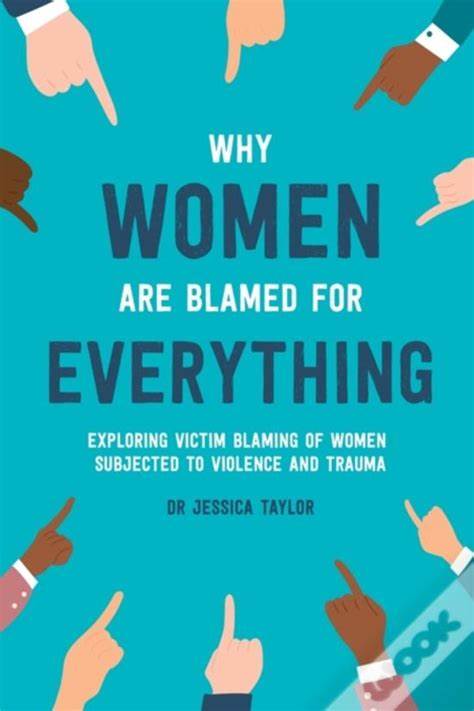articles
China Elevator Stories
Why Women Are Blamed For Everything: Exposing the Culture of Victim-Blaming (by Dr. Jessica Taylor)
Women who experience abuse and violence are often blamed for their perpetrator’s actions.
10/10/2024

Ruth Silbermayr
Author

Dr. Jessica Taylor starts her book Why Women Are Blamed For Everything: Exposing the Culture of Victim-Blaming with these words:
“This book is dedicated to the millions of women and girls around the world who are routinely subjected to abuse, violence, torture, harassment, rape, forced marriage, mutilation and exploitation at the hands and minds of men and patriarchy.
The millions of women who are living their best lives as best as they can whilst trying to process the violence and misogyny committed against them, often without support or compassion.”
If you are a long-term reader of my blog, you may know I was experiencing extreme victim blaming, whilst also losing my children to my ex-husband. Many others have experienced the same.
Dr. Taylor wrote her book for this reason:
“Writing and releasing this book feels like such a huge task. It is the first book that attempts to bring together theories, research findings, case studies and real experiences from professional practice to explore why we blame women and girls for anything and everything we possibly can.
I named the book ‘Why Women are Blamed for Everything’ for a reason. This year, I have been working with and for women and girls subjected to male violence for 11 years – since I was 19 years old. I sometimes feel like no matter who the woman or girl is, what she did, what she said, where she’s from – we will still find a way to blame her for everything that was done to her by an abusive man. (…)
This is to the point where women can be murdered by men, and as a society, and as professionals, we still look for what the woman did wrong, what she could have done differently, and why she didn’t tell someone what was being done to her.”
Initially, I thought that my family, friends and acquaintances would support me when I told them about the abuse I had suffered. But I had to realize that they did not. The more people I told what had happened to me, the more people there were who blamed me. Some were always looking for the one little thing I had done wrong that had led to me experiencing what I had experienced and everything being my fault. In the end, I found myself completely alone and isolated, as is the case with many other women.
For many years, I also didn’t write about the years of abuse I had suffered, because I felt too ashamed.
Dr. Taylor writes:
“When women and girls have built up the courage to tell someone they had been raped or abused, the experience of being blamed or held responsible had stayed with them for years. It had changed the way they saw themselves. No matter how many times I heard it, I never became desensitized to hearing the impact of victim blaming on women and girls.”
In my experience, certain women blamed me for the bad things that happened to me, but if they found themselves in a similar situation, they wouldn’t blame themselves.
Dr. Taylor differentiates between different kinds of victim blaming, such as behavioural blame, characterological blame and situational blame.
Behavioral blame includes statements such as:
“She was drinking, she went out with her friends, she walked home alone, she got a taxi alone, she was using a dating app, she was flirting, she was asking for it, or she wore revealing clothing”.
Characterological blame may sound like this:
“She is promiscuous, she is sexualized, she is too trusting, she is naïve, she is vulnerable, she makes poor choices, she takes risks, she is not very clever/wise/savvy.”
Lastly, situational blame includes phrases such as:
“Parties like that can be dangerous; well, you know what happens at that park; if you go to hotels like that, it might happen; walking home through parks is dangerous; going jogging alone is a risk factor for rape; carparks are a dangerous place for women.”
Usually, people only look at what you have done wrong, but not at how cruel, conscienceless or evil the perpetrator has been.
In those cases where I have been victim blamed, the undertone was often that I should love my perpetrator, or treat him more kindly, as though I were treating him cruelly by speaking the truth about him, and not choose to love myself and treat myself kindly instead.
According to Dr. Taylor,
“all victim blaming minimizes or erases the actions and choices of the offender from their own offence.”
Victim blaming can become so horrific a woman may choose to end her life. It is one thing to be abused by a man, but another to then be blamed for it by people you thought you could confide in and trust.
Have you ever experienced victim blaming?